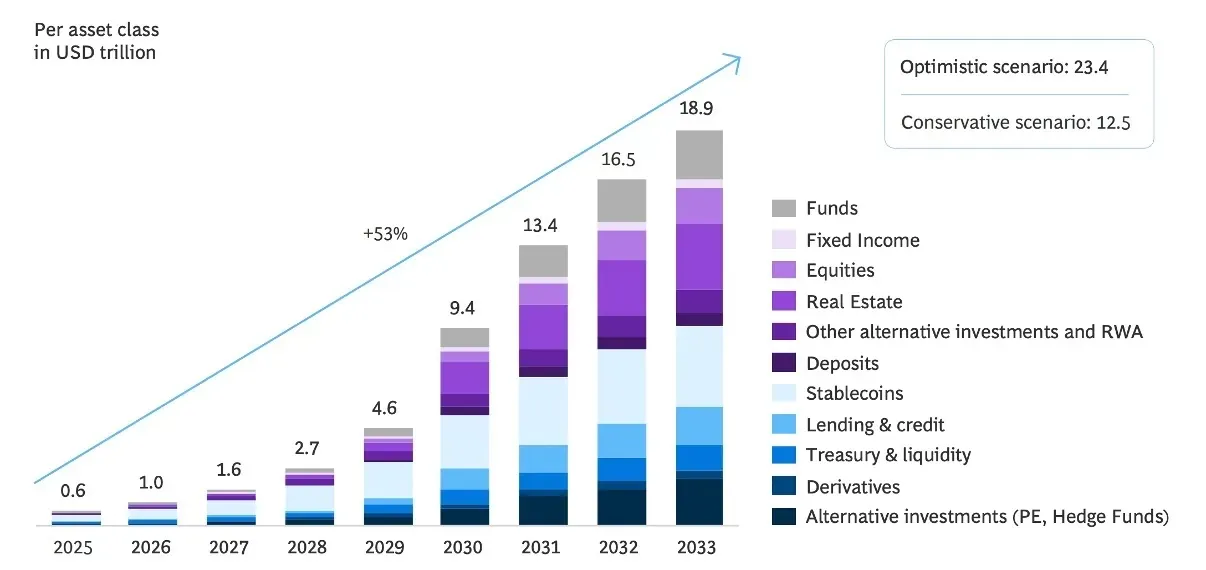Circle’s initial public offering (IPO) highlighted the exclusiveness of early stage investments. The rise of tokenized real-world assets opens these opportunities to a larger audience, and institutional investors are increasingly adopting this change.
Kingsley Advani, CEO of tokenized stock exchange Allo, emphasizes that the future of tokenized lies in a hybrid model that combines traditional finance with blockchain. This model increases access, transparency and efficiency to create a more comprehensive financial system.
Exclusion of early stage investments
The circle’s debut IPO on the New York Stock Exchange showed that investors could get from such a list.
Before the IPO, Circle priced at $31 per share. It opened for $69 and closed its first trading day at $83.23, earning 168% profit. Although impressive, this success also revealed the exclusive nature of accessing early stage investments.
For decades, institutions have controlled access to key investment avenues and limited opportunities for retail investors. Few non-institutional players can buy private equity without significant capital.
According to a recent Gallup poll, only 62% of US adults own stock, but the minimum investment requirement for the Treasury or private equity reaches $100,000.
Slowly, blockchain technology is changing this reality.
The rise of tokenized real-world assets and blockchain promises
The tokenized real-world assets (RWA) market has gained momentum over several crypto cycles, which are now valued at $2.08 trillion, and is projected to reach $18.9 trillion by 2033.

“This shift goes beyond technical upgrades and suggests a meaningful redistribution of access and control. By distributing ownership, we will take the tokenization level to a competitive ground and move to a future where the gatekeeping model is no longer retained,” Advani told Beincrypto.
Tokenization of assets such as stocks is an important example of this trend. Lower investment barriers by reducing minimums and making these assets more accessible to retail investors. Key players are aware of this technology.
Expanding tokenized investments
Tokenized stocks represent significant developments in the broader market. Institutions are increasingly leveraging blockchain technology to provide more accessible versions of traditionally exclusive assets. Kraken’s recent launch of tokenized stock exemplified this shift.
In addition to stocks, other tokenized assets such as bonds and yield-backed equipment (including tokenized Treasury Department over $7.3 billion) have contributed to this expansion.
“The arrival of tokenized stocks, bonds and the means to support crop yields quickly balances the appetites of institutional and retail investors,” Advani said.
Meanwhile, as tokenized markets grow, distributed financial (DEFI) lending platforms like EULER allow BuidL to be used as collateral, allowing users to borrow Stablecoins while displaying real-time risk data on the blockchain. These platforms operate without intermediaries and provide open access without the need for broker approval or certified investor status.
Several jurisdictions, such as the United Arab Emirates, Singapore and Hong Kong, have already established regulatory frameworks for digital assets that allow the creation, trade and resolution of iconic securities.
Regulatory efforts promote transparency and accountability and enhance the reliability and stability of tokenized markets. These developments provide a solid foundation for future growth.
Stability with wider participation
One important benefit of wider participation in tokenized markets is the potential to reduce volatility. Increased diversity in holders reduces the impact of large market-powered transactions, often driven by whales, leading to more stable markets.
“Wider participation will strengthen the market, especially when driving away short-term speculators. The presence of diverse holders will dilute whale-driven price fluctuations, proof of resolve in chains will eliminate opaque practices like Re-Hippothe, and a transparent collateral dashboard will make trades visible 24/7.
As tokenized markets grow more steady, they open the door to the future with a more inclusive and accessible financial system.
Transform wealth creation using hybrid models
Advani emphasized that tokenization not only expands financial access, but also fundamentally changes wealth creation.
“Tokenization isn’t about adding risk or subverting legacy infrastructure. It’s about creating an open and fair market for everyone to own the assets that support the stack.”
In the future, he is envisaging a hybrid model in which traditional finance (TRADFI) and blockchain coexist and complement each other. Tokenized assets are not going to replace traditional systems, but they enhance them, increasing accessibility, transparency and efficiency.
Ultimately, this hybrid approach will help balance the benefits of both financial structures and support the development of a more transparent and accessible financial system for a wider range of participants.
Disclaimer
Following Trust Project guidelines, this feature article presents the opinions and perspectives of industry experts or individuals. Although Beincrypto is dedicated to transparent reporting, the views expressed in this article do not necessarily reflect the views of Beincrypto or its staff. Readers should independently verify the information and consult with experts before making decisions based on this content. Please note that our terms and conditions, privacy policy and disclaimer have been updated.
